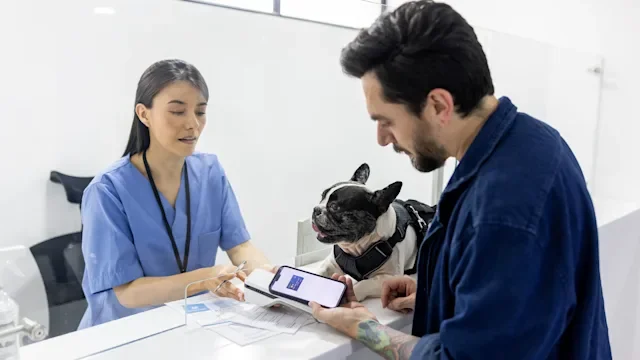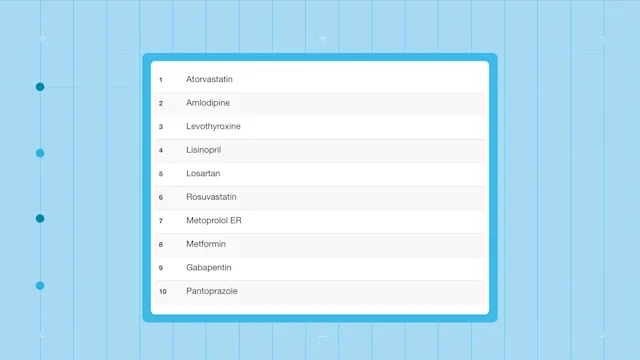Key takeaways:
A survey by the GoodRx Research team shows that people feel less nervous about getting COVID-19 and more protected against serious illness after receiving the full vaccination with a booster.
Overall, 54% of people feel less nervous now about getting COVID-19 compared to the beginning of the pandemic. And 56% of people feel fully protected from serious illness from COVID-19.
More than 25% of people have never been tested for COVID-19. Not having symptoms was the most common reason for not getting tested.
As we move into the pandemic’s third year, many people are burnt out by COVID-19 and its related restrictions. Measures such as social distancing and mask-wearing have ebbed and flowed as different variants have emerged and public health experts have received new information.
As the Omicron wave recedes, policymakers in all states have lifted indoor mask mandates. At this stage of the pandemic, testing and vaccine requirements are the most common ways to reduce infections, hospitalizations, and deaths.
But despite the importance of these requirements, GoodRx Research found that many people have never been tested for COVID-19, and nearly 25% have not been fully vaccinated.
Below, we take a closer look at these rates and whether vaccination or natural infection makes people feel safer about getting sick from COVID-19.
Over a quarter of people have never been tested for COVID-19
Testing is an effective strategy to prevent the spread of COVID-19 and will likely play a major role going forward to contain the virus. Testing frequently, tracing contacts of infected people, and following CDC guidelines after exposure or infection all work together to curb the spread of the virus.
The CDC lists the following reasons to get tested for COVID-19:
If you have COVID-19 symptoms
If it has been at least 5 days since you had a known or suspected close contact with someone infected with COVID-19
If you are being screened (at school, the workplace, social settings, etc.)
If you are traveling (before and after)
If a healthcare professional or public health official asks you to get tested
Despite the many scenarios in which someone could get tested, GoodRx Research found that nearly 27% of people surveyed had never been tested for COVID-19.
The most common reason for not getting tested was not experiencing symptoms (74%). However, it’s still possible to be asymptomatic and contract COVID-19. So, depending on the circumstance, it may be important to get tested even if you don’t have symptoms.
Other reasons for not getting tested included: not trusting the accuracy of COVID-19 tests (8%), recovering rapidly (6%), and being unable to get a test (6%). The least common reasons were being unable to get to a testing location (4%) and not knowing where to get tested (1%).
Read more like this
Explore these related articles, suggested for readers like you.
That means people are aware of COVID-19 testing and where to find it, but some lack trust in the tests themselves. This distrust will remain a hurdle for public health leaders going forward.
Most people have received at least one COVID-19 vaccination shot
Along with regular testing when necessary, receiving the full recommended course of the COVID-19 vaccine is a safe, effective way to reduce the potential harms of the virus.
Over a year ago, the first COVID-19 vaccine was released to the public. The vaccine provides a high level of protection against COVID-19 by creating an immune response in the body. Vaccinations have been crucial to slowing the pandemic and returning to normal. However, the protection provided by the COVID-19 vaccine wanes over time. A booster shot is recommended to maintain the same level of protection.
GoodRx Research found that nearly 50% of people were fully vaccinated with a booster, 26% were fully vaccinated without a booster, 5% had an incomplete vaccination series, and 20% had not been vaccinated at all. This data lines up with CDC estimates that about 82% of people 5 years and older have received at least one dose of the COVID-19 vaccine.
It is well established that the vaccine can reduce COVID-19 symptoms and slow the spread of the virus. But how safe does vaccination make people feel?
Vaccination is more successful than natural infection at reducing COVID-19 fears
The goal of COVID-19 vaccination is to reduce illness, hospitalization, and death from the virus by providing immunity. As with all vaccines, people can still become infected after vaccination.
However, fully vaccinated people with breakthrough infections are less likely to experience severe symptoms. Exposure to COVID-19 through illness can also provide immunity.
So, does vaccination or natural infection make people feel more protected against COVID-19?
We found that full vaccination with a booster helped people feel the most protected against serious illness from COVID-19. Also, more people who were fully vaccinated and boosted felt protected from serious illness. Previous COVID-19 infection didn’t impact people’s sense of safety — regardless of vaccination status.
GoodRx Research found a similar effect when respondents were asked how nervous they felt about getting COVID-19. The majority of people who were fully vaccinated and boosted felt less nervous about getting COVID-19 now compared to the start of the pandemic, regardless of prior infection status. Having had COVID-19 didn’t seem to make fully vaccinated and boosted people feel any less nervous about getting COVID-19 again.
But, for unvaccinated people, having had COVID-19 once, twice, or more did make them feel less nervous about getting the virus — though the vaccinated groups still felt more protected. About half of the people in this group who had had COVID once or twice felt less nervous about getting COVID-19 now versus at the start of the pandemic; in contrast, only 1 in 3 people in this group with no prior infections felt less nervous now.
This may be because acquiring immunity through natural infection is the only layer of protection against the virus for those who are unvaccinated.
Summing it all up
People are understandably getting tired of restrictions after more than 2 years of “pandemic life.” Many, however, are still worried about getting COVID-19 and becoming seriously sick from it. Overall, our findings show the boosted population feels the least worried about COVID-19 and the most protected against serious illness.
As we’ve learned from the multiple COVID-19 variants, testing plays an important role in slowing down the virus’ spread. Given that more than 25% of people have never been tested for COVID-19, policymakers and public health officials should focus on encouraging more frequent testing, even if those being tested are asymptomatic.
Co-contributors: Sasha Guttentag, PhD, Jeroen van Meijgaard, PhD, Tori Marsh, MPH, Lauren Chase
Methodology
Our survey was conducted through SurveyMonkey and ran from February 23 to February 26, 2022; a total of 2,674 responses were collected and analyzed. Respondents included people based in the U.S., from various socio-demographic groups. We weighted survey responses to the U.S. population using age, gender, race/ethnicity, and income. More information on the SurveyMonkey methodology is available here.
References
Centers for Disease Control and Prevention. (2022). COVID-19 testing: What you need to know.
Centers for Disease Control and Prevention. (2022). Vaccine breakthrough infections: The possibility of getting COVID-19 after getting vaccinated.
Kuster, A.C., et al. (2021). A novel comprehensive metric to assess effectiveness of COVID-19 testing. PLOS ONE.
The New York Times. (2022). Daily COVID briefing.

Why trust our experts?


















